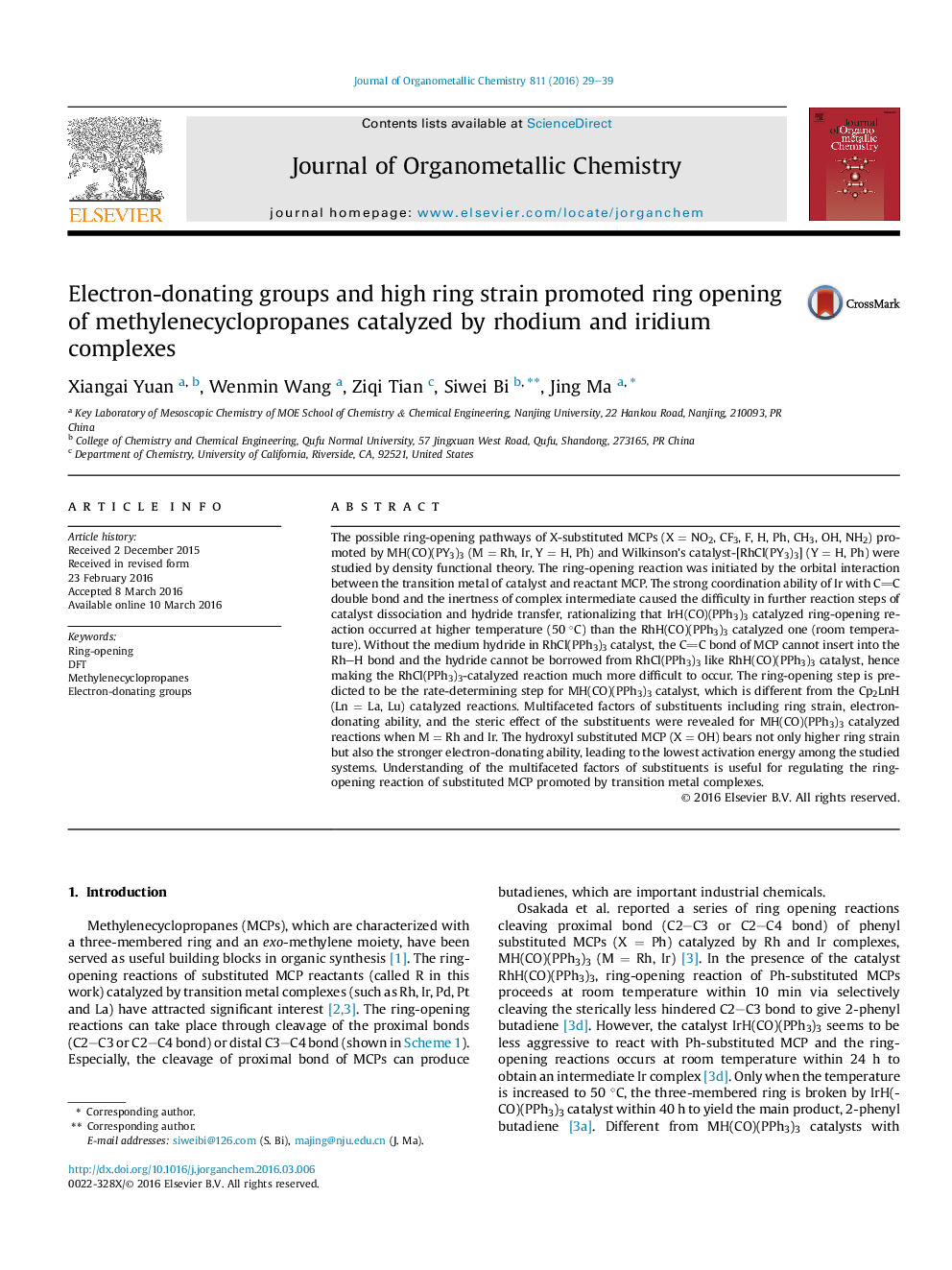| کد مقاله | کد نشریه | سال انتشار | مقاله انگلیسی | نسخه تمام متن |
|---|---|---|---|---|
| 1321831 | 1499834 | 2016 | 11 صفحه PDF | دانلود رایگان |
• Regulation of ring-opening reactivity of MCP by catalysts and substituents.
• For catalysts with a hydride ligand ring-opening is the rate determining step.
• Electron-donating groups and high ring strain promote ring opening of MCP.
The possible ring-opening pathways of X-substituted MCPs (X = NO2, CF3, F, H, Ph, CH3, OH, NH2) promoted by MH(CO)(PY3)3 (M = Rh, Ir, Y = H, Ph) and Wilkinson's catalyst-[RhCl(PY3)3] (Y = H, Ph) were studied by density functional theory. The ring-opening reaction was initiated by the orbital interaction between the transition metal of catalyst and reactant MCP. The strong coordination ability of Ir with CC double bond and the inertness of complex intermediate caused the difficulty in further reaction steps of catalyst dissociation and hydride transfer, rationalizing that IrH(CO)(PPh3)3 catalyzed ring-opening reaction occurred at higher temperature (50 °C) than the RhH(CO)(PPh3)3 catalyzed one (room temperature). Without the medium hydride in RhCl(PPh3)3 catalyst, the CC bond of MCP cannot insert into the RhH bond and the hydride cannot be borrowed from RhCl(PPh3)3 like RhH(CO)(PPh3)3 catalyst, hence making the RhCl(PPh3)3-catalyzed reaction much more difficult to occur. The ring-opening step is predicted to be the rate-determining step for MH(CO)(PPh3)3 catalyst, which is different from the Cp2LnH (Ln = La, Lu) catalyzed reactions. Multifaceted factors of substituents including ring strain, electron-donating ability, and the steric effect of the substituents were revealed for MH(CO)(PPh3)3 catalyzed reactions when M = Rh and Ir. The hydroxyl substituted MCP (X = OH) bears not only higher ring strain but also the stronger electron-donating ability, leading to the lowest activation energy among the studied systems. Understanding of the multifaceted factors of substituents is useful for regulating the ring-opening reaction of substituted MCP promoted by transition metal complexes.
Figure optionsDownload as PowerPoint slide
Journal: Journal of Organometallic Chemistry - Volume 811, 1 June 2016, Pages 29–39
